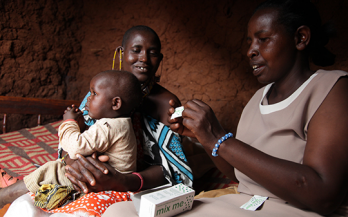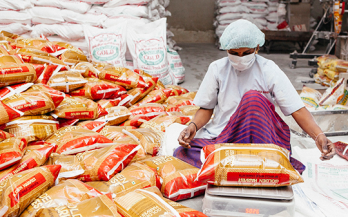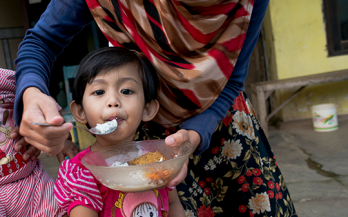This study set out to assess if universal salt iodization provides sufficient dietary iodine to meet the iodine requirements and achieve adequate iodine nutrition in all vulnerable population groups.
The aim of this study was to generate preliminary theories about factors affecting adherence to recommendations with regard to point-of-use fortification of foods with micronutrient powders. This study concluded that in order to achieve programs that support greater adherence, there must be an adoption of a cultural-ecological perspective to inform program design in order to address a broader set of determinants.
This study describes features of the landscape of behaviour change communication practice devoted to infant and young child feeding in low‐ and middle‐income countries by practitioners in international development organizations.
A cross-sectional survey on households with at least one child 6–23 months was conducted to update coverage figures with adequately fortified food vehicles in Abidjan, Côte d’Ivoire, and to evaluate whether additional iron and vitamin A intake is sufficient to bear the potential to reduce micronutrient malnutrition.
This study aimed to estimate the potential contribution certain processed foods can make to micronutrient intake in Southeast Asia if they are made with fortified staples and condiments.
This paper describes the focused ethnographic study on complementary feeding that was commissioned by the Global Alliance for Improved Nutrition and highlights findings from studies conducted in three very different country contexts (Ghana, South Africa and Afghanistan) burdened by high levels of malnutrition in older infants and young children.
Although it is generally accepted that the addition of micronutrient powders (MNPs) to foods causes no or negligible changes to organoleptic properties, there are anecdotal reports of low acceptability of the MNP distributed in Indonesia. The objective of this study was to assess whether the organoleptic properties of micronutrient powders reduce the acceptability of foods if used as recommended.
Fortified beverages and supplementary foods, when given during pregnancy, have been shown to have positive effects on preventing maternal anaemia and iron deficiency. The purpose of this paper is to assess how fortified food, when given during pregnancy, has positive effects on preventing maternal anaemia and iron deficiency.
Since 2006, the Global Alliance for Improved Nutrition (GAIN) has worked with a range of partners to improve access to nutritious foods for large parts of the population, through public and private delivery channels. This supplement presents a selection of activities to improve access to nutritious foods for large parts of the population, through public and private delivery channels.
The objective of this study was to examine effects on child development of a group-based parenting support program when combined with Mexico’s conditional cash transfer program.










